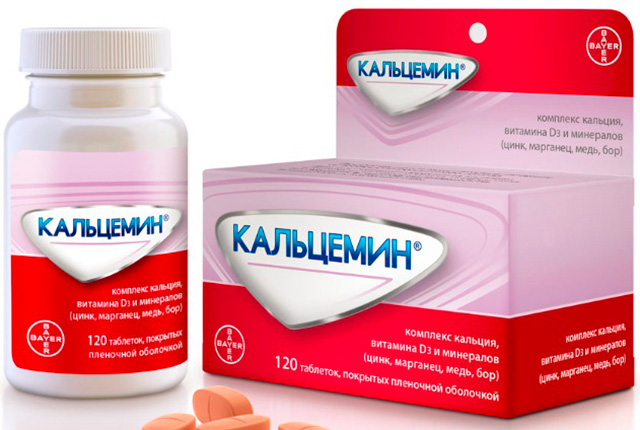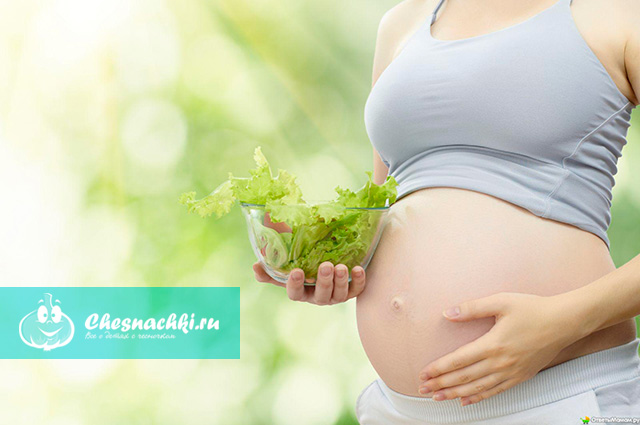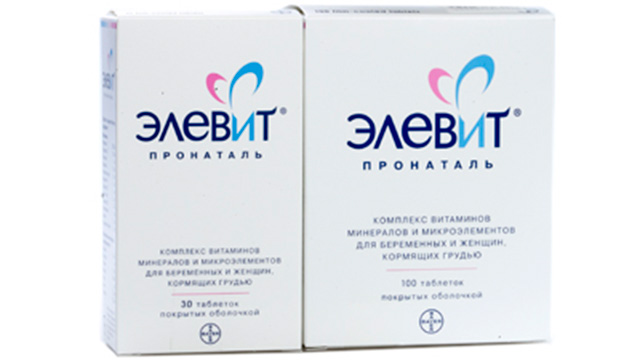The best vitamins for pregnant women rating advice from doctors. The best vitamins for pregnant women. Vitamin complexes for pregnant women.
Good afternoon, dear readers!
Vitamins play a big role in our body. Without them, it is impossible to be truly healthy, they support our immunity. These compounds are especially important during pregnancy for the construction of the baby's organs.
If some substance is in the female body in insufficient quantities, the child may develop pathologies. Consider the main vitamins for pregnant women which are better to choose.
When you start taking any supplement, you should always be aware of the potential side effects. When it comes to prenatal, there are usually no noticeable side effects unless you take too much. With that said, there can be a number of serious side effects to taking too many vitamins. Some nutrients, such as iron, can cause serious problems if taken within the recommended safety limits.
To avoid side effects, it is important to talk to your doctor. In addition to this, keep in mind that prenatal vitamins also contain more than one complete multivitamin, meaning you don't need to take multiple standards in addition to your prenatal.
Not all women agree that vitamin complexes are needed during pregnancy. Some moms-to-be claim these are synthetic compounds and it's much better to get your nutrients from natural foods.
However, today this view is not entirely correct. Our food is not of high quality to get all the necessary vitamins from it. For example, to get a daily dose of folic acid, you need to eat 100-200 grams of liver per day.
How to take prenatal vitamins
While you are talking to your healthcare provider and not taking more than the recommended dose, you should not experience side effects in the prenatal period. Ideally, prenatal vitamins should be taken before conception actually occurs. Much vital important changes occurs in the first few weeks of pregnancy - a period of time when many mothers do not yet know that they are pregnant. Because of this, it is important to start prenatal care before you become pregnant.
In other words, if you and your partner are ready to have a baby and you're trying to get pregnant, it's time to start taking prenatal care! In fact, they can help you think beyond reducing the risk of birth defects and developmental problems from the start.
However, by itself, the consumption of such an amount of liver is not very healthy, because it has a lot of cholesterol. At the same time, a lack of B9 (folic acid) leads to the formation of pathologies of the nervous system in the embryo.
I think this simple example clearly shows how necessary it is for pregnant women to take vitamin complexes. But it is not recommended to choose drugs for yourself: it is better if the doctor does this, based on the characteristics of the body of the pregnant woman and the trimester of pregnancy.
If you're already pregnant, you should talk to your doctor right away about adding a good prenatal vitamin to your diet. Most mothers-to-be will benefit from taking prenatal vitamins. As discussed in previous sections, using an excellent prenatal vitamin can help you stay healthy by extending your pregnancy, in addition to reducing your baby's risk of future health problems.
In terms of dosage, it's generally recommended to stick to the standard dosage that's in your bottle. Do not exceed the recommended dose unless otherwise directed by a healthcare professional. As always, it's a good idea to check with your doctor before taking any supplements, including prenatal ones. And since you're going to visit your doctor anyway for a checkup, you can only talk about vitamins during the session to get your feedback.
What does a pregnant woman need?
1 trimester
Each trimester has its own set of beneficial compounds. To find the right drug, you need to know what nutrients a woman needs in each trimester to build a baby's body.
What to look for in a prenatal vitamin
To choose the best prenatal vitamin for you, there are certain factors you need to keep in mind. We've already created a list of the top 10 vitamins for pregnant women, but before you look at that, read the following tips to find out what you're looking for!
Ingredients included. First take the first steps, carefully look at the label of the ingredient. Any strong prenatal vitamin should contain a complete daily multivitamin to meet your needs, as well as adequate iron, calcium, and folic acid to aid in your baby's healthy development. Additional ingredients that are not strictly necessary but can have wonderful benefits.
If you decide to take vitamins for pregnant women, you should ask which ones are better in the 1st trimester. The future health of the child depends on the correct laying of organs. In the first trimester you need:
- Vitamin E. It is also called the growth vitamin. The daily dose is 15 mg. Contained in parsley, peas, tomatoes. Promotes the formation of the placenta and reduces the risk of miscarriage.
- Folic acid (B9). The daily dose is 0.4-0.8 mg. In addition to accelerating cell division and the normal development of the placenta, its role in the body of a pregnant woman is to properly form the neural tube of the fetus. Most folic acid in the liver, it is in legumes, spinach. However, B9 is an unstable compound that is destroyed even when sunshine. So folic acid is absorbed from food in negligible amounts, which is why there is a constant lack of it.
- Vitamin A. You need no more than 2500 IU per day. Necessary for the formation of the organs of vision, skeleton, nervous system. Contained in carrots, apricots, liver.
- Magnesium. Reduces the tone of the uterus and gives the muscles elasticity.

Brand Quality - Have you heard of the brand before? Are they known for producing quality products? However, if you decide to buy elsewhere, be sure to do your research to find high quality brands. Community Feedback - Prenatal vitamin reviews can be a great resource to learn how consumers love the product. Of course, you should criticize with a grain of salt, but nonetheless, this can be a good indicator of the overall effectiveness of the product.
Doctor's recommendations. As soon as you find out that you are pregnant, or if you are planning to become pregnant, you should contact your doctor immediately. He or she can make specific recommendations regarding your nutritional needs. We hope this guide will help you learn about prenatal vitamins and how they can help you during your pregnancy. As always, it is highly recommended to speak to your doctor before starting any new supplement.
In the 1st trimester, you need to select drugs with a large amount of these vitamins or purchase each of them separately. Vitamin A is combined with C in Revit, one of the cheapest drugs. Vitamin E is sold in the form of oil drops or capsules. Magnesium can be obtained from Magne B6.
In early pregnancy, this combination of compounds is considered the most successful.
Finally, keep in mind that the add-on industry is constantly changing and new products are released regularly. It's a good idea to bookmark this page so you can check it out later. We always keep our guides and recommendations up to date.
vitamins
Thanks for reading and good health to you! During pregnancy, they help prevent deficiencies in your diet and also prevent future risks to the baby. Among the results was that vitamin supplements prevented infant deaths and abortions. The daily dose of iron administered was 30 milligrams and 400 micrograms for folic acid. These supplements were taken daily during pregnancy and were maintained up to 90 days postpartum. The results of the study show that children of mothers who took this supplement reduced early mortality by 18% compared to children of mothers who took only iron and folic acid.
2 trimester
If you continue to drink prenatal vitamins in the middle of this period, ask what is best in the 2nd trimester. For a growing baby, the role of trace elements increases:
- Iron. The lack of this element leads to anemia, a drop in hemoglobin levels. Hence the oxygen starvation experienced by the fetus. The condition is very dangerous, since hypoxia can slow down the development of the baby and even lead to mental abnormalities. Sufficient iron intake also ensures normal uterine tone.
- Calcium. Since the bones of the child grow rapidly, they need calcium. However, calcium is poorly absorbed from dairy products and quickly decomposes. Products such as coffee, tea, contribute to its removal from the body. With a lack of calcium, the baby's nervous system also suffers, mental development.
- Iodine. Another trace element necessary for the brain and bones. It is found in seafood, sea salt. But few people can eat these foods in large quantities every day.
Among the drugs containing these trace elements and recommended in the second trimester, we can name:
Overdose and side effects
The effect of supplementation on women with poor nutrition or anemia was greater, and infant mortality was reduced by 25% and 38%, respectively, than in groups receiving only iron and folic acid. The treatment is also associated with a reduction in the number of babies born with low birth weight. In particular, treated women were 14% less likely than controls to have a low birth weight baby.
The risk reduction was also significantly higher in women with anemia. According to the authors, the impact of vitamin supplementation may depend on the lack of these nutrients and involve several mechanisms. The study was conducted by a team led by Anurai Shankar from Mataram University, Indonesia.

As for iron supplements, you should consult your doctor. They are prescribed if a pregnant woman has a decrease in hemoglobin and are administered in the form of injections or injections. If this is not possible, the doctor will select a comfortable oral form for the woman.
3rd trimester
Continuing to take vitamins for pregnant women, while thinking about which ones are better in the 3rd trimester. During this period, the need for vitamin B6 increases, vitamin E regains its importance.
Are you pregnant and prescribed iron? Don't worry if your iron levels are low or anemic during pregnancy, this is what usually happens. On the one hand, there is a child on the way who needs iron for his development, and it is you who will provide it. By mid-to-late pregnancy, the iron you ingest through your diet may not be enough to meet your and your baby's needs. Another reason you may need is because you need to produce more blood when you are pregnant, and for that you need more iron. However, not all pregnant women need the supplement.
Vitamin B 6 is found in meat, beans, nuts. It will not be superfluous to continue taking calcium and iron.
Overview of vitamin complexes
Reviews of experts on the need to take vitamin complexes during pregnancy claim that these drugs are necessary not so much for the child, but for the health of the woman herself.
The baby receives already processed nutrients from the mother's body. Even if a woman does not eat fully, the fetus will still suck out everything that he needs from her. So laid down by nature: this is a child protection system. Even during war and famine, women could give birth to healthy children.
Vitamins - from the word "life"
In the analysis, which will be carried out throughout the pregnancy, hemoglobin levels will be measured, which will tell your gynecologist if you need or not to take iron. If you have already been prescribed or are taking this, you should know what is ideal for taking iron because certain foods can reduce its absorption and therefore its effect. However, taking it on an empty stomach can cause gastrointestinal side effects, which add to the typical discomfort of pregnancy, making the combination of an iron pregnancy on a mission impossible.
But what will happen to the mother, is she malnourished? The lack of vitamins will affect her health: anemia will develop, problems with the musculoskeletal system, and the cardiovascular system will appear.
Doctors advise taking drugs even when planning a pregnancy. But if this did not work out, you should turn to vitamin complexes during pregnancy. We present the best medicines that are currently sold in pharmacies for pregnant and lactating mothers.
When to take iron
In this post, with video included, we give you the solution and tell you clearly and clearly how and when to take the iron to get the most out of it. The answer is simple, iron supplements should only be taken if prescribed by your gynecologist. You should never take them on your own.
From the very beginning of pregnancy, you can take a nutritional supplement with folic acid and other vitamins and minerals to prevent possible deficiency of any of these nutrients. Even though this type of supplement, which usually also contains a small amount of iron, during the second or third trimester of pregnancy, your hemoglobin level in the tests may be accompanied by an asterisk.
Elevit
It is better to take in the 1st trimester and with the threat of miscarriage, since the drug contains a large amount of magnesium. It also contains folic acid, but no iodine at all. Reviews of doctors speak of a supersaturated composition of the drug, so it is often prescribed for beriberi.
As we said in the introduction, it is recommended to take fasting tablets, one hour before meals. It can also be taken 3 hours after a meal. You must take your tablets whole, without chewing or chewing. The reason is very simple, if you mix iron with food, you run the risk of it not being absorbed correctly, so you will take less than the recommended amount.
Laundry iron feels terrible
The problem is that gastrointestinal side effects such as stomach pain, heartburn or heartburn, nausea, vomiting, constipation or diarrhea are the most common side effects of iron supplementation. If you feel discomfort or aggravation of those you already have, you can take it after a meal, but pay attention to the foods to avoid if you want to make the most of it.
Vitrum Prenetal Forte
This is a drug with a rich composition. There are vitamins and minerals, among which there is iodine. Reviews about the drug are mostly positive. After taking it, the condition of the skin, nails and hair noticeably improves.
Femibion
The drug is good because it has two forms of release: Femibion 1 and Femibion 2. They differ in their composition and are intended for the first and second half of pregnancy. Femibion 1 is characterized by a large amount of folic acid, which corresponds to the needs of the fetus in the first trimester. Negative side complex is the fact that it does not contain vitamin A, calcium and iron.
When should you start taking multivitamins?
Milk and dairy products such as yogurt or cheese high-fiber whole grains caffeine, coffee, tea, soft drinks or energy drinks. You can also reduce your intake of certain medications, such as calcium supplements or bicarbonate supplements. If you continue to take iron after meals, check with your doctor to see if you can change your medication.
Video on how to take iron pills
Other hardware recommendations
Just like there are foods that reduce their absorption, there are others that help make it better. For example, citrus fruits such as oranges, tangerines, kiwi, strawberries or tomatoes. Remember that during pregnancy it is very important to follow a healthy and balanced diet without neglecting iron-rich foods.
Alphabet
A complex that doctors recommend taking throughout pregnancy. It has a high content of vitamin B9, iodine. Along with positive reviews, negative opinions about the drug also appear on the network: women talk about its inefficiency.
Iron Side Effects
The most common adverse reactions that provoke iron supplements are of gastrointestinal origin. Abdominal pain Heartburn Nausea and vomiting Intestinal transit disorders such as diarrhea or constipation Dark colored stools You should not be concerned if your stools are dark green or almost black in color. These supplements often cause some constipation. If you want to go to the bathroom regularly, remember to drink plenty of water, keep exercising during pregnancy, and include fiber-rich foods in your diet, although you should avoid them when taking iron.
Sana Sol
The complex includes all the compounds necessary for a pregnant woman. You can take it in the morning and afternoon.
Complivit Mom
It is an inexpensive drug, which, however, tends to cause side effects in the form of constipation and allergies. The content of calcium and phosphorus in it is lowered. Reviews are both positive and negative. Some mothers call it an excellent analogue of Elevit, but much cheaper. Others complain about side effects and lack of results.
What are good vitamins to choose? The answer to this question is difficult to find. We can only give a few recommendations:
- Select complexes according to composition depending on the trimester.
- Consult a doctor before use.
- If side effects occur, stop taking the medication and replace it with another one.
- Take vitamins regularly: only then the treatment will be effective.
That. optimal multivitamin complexes, balanced incl. according to the sources of vitamin A (half the dose is in beta-carotene, which does not have a harmful effect) and microelements, are Alphabet Mom's health, Materna in pink tablets (with selenium) and Vitrum Prenatal forte - their composition is similar, there are fewer fat-soluble vitamins in materna, including vitamin A, it is ideal. The old version of Materna in yellow tablets contains a large amount of fat-soluble vitamins: vitamin A in the form of retinol, and vitamin D. The advantages in terms of folic acid content do not matter, since the daily dose of folic acid for the first trimester is 3-4 mg per day, i.e. . requires additional folic acid supplementation. Vitamin complexes, not designed specifically for pregnant women (Oligovit is considered as an example), despite the richness of the composition, they are completely unbalanced in terms of the substances necessary during pregnancy (low content of folic acid and high content of vitamin A.). Quite fashionable now Elevit pronatal does not contain iodine, which is absolutely necessary during pregnancy as a guarantee of normal intelligence and development of the child, and contains smaller daily doses of almost all water-soluble vitamins compared to Vitrum or Materna with an excess of fat-soluble vitamins. Pregnavit and Ladys Formula do not contain trace elements, including iodine. All these features are not disadvantages of the complexes, but are precisely their distinctive features: there are people who are contraindicated in taking iodine preparations, some other microelements, etc. The choice of multivitamin should be carried out by the attending physician responsible for the preparation and management of pregnancy.Vitamins are the source of our vitality, but they must be taken with care.








